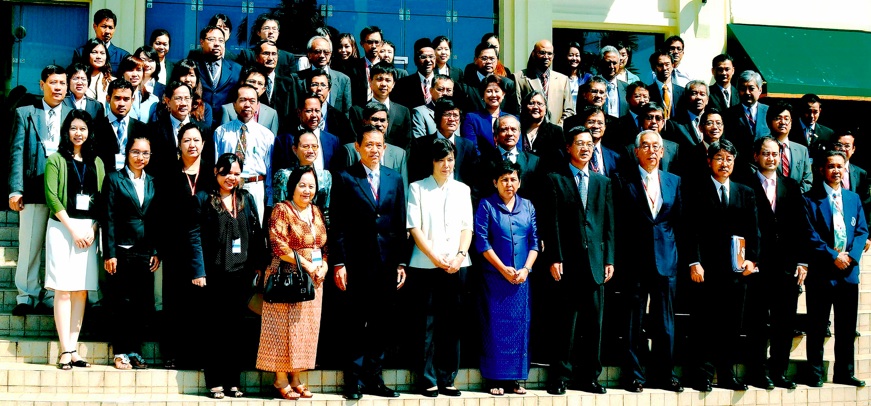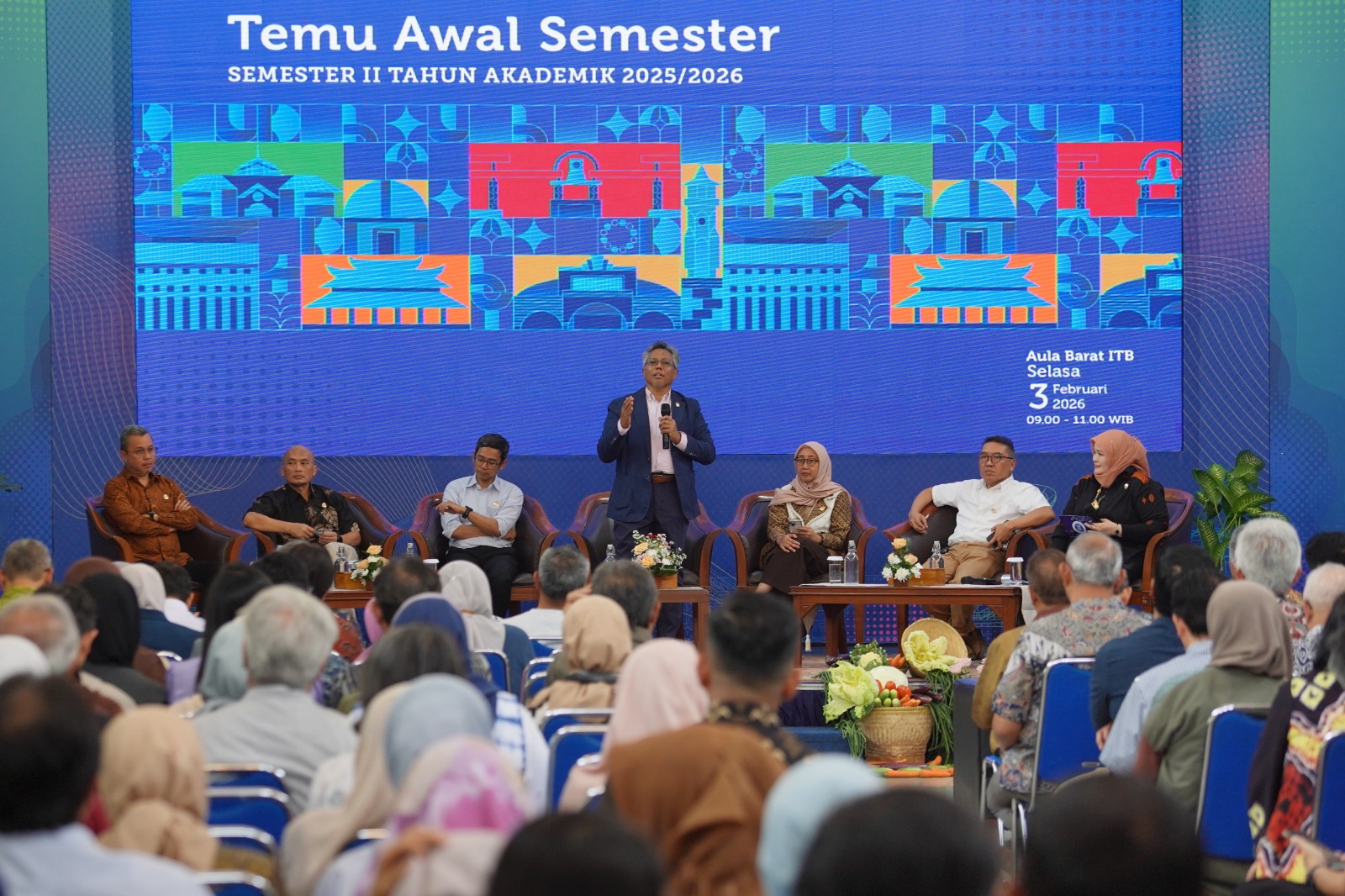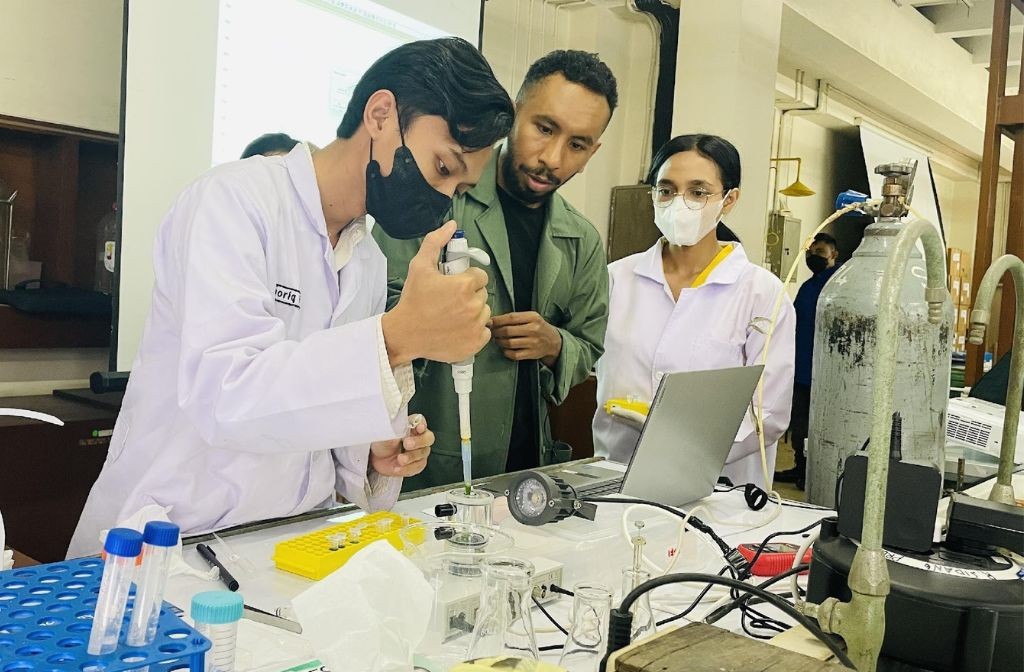AUN/SEED-Net Plans for Contribution to Engineering Education, Industry, and Researches on Global Issues
Oleh Beni Rio Hermanto
Editor Beni Rio Hermanto

 Members and stakeholders of the AUN/SEED-Net Project conferred on the plan for the Project's future phase, which would aim to develop engineering human resources for educational capacity enhancement and industrial advancement along with joint researches addressing global issues. The tentative plan was introduced at the 18th Steering Committee Meeting and Year 2011 Annual Meeting in Phnom Penh last week.
Members and stakeholders of the AUN/SEED-Net Project conferred on the plan for the Project's future phase, which would aim to develop engineering human resources for educational capacity enhancement and industrial advancement along with joint researches addressing global issues. The tentative plan was introduced at the 18th Steering Committee Meeting and Year 2011 Annual Meeting in Phnom Penh last week. The 18th Steering Committee Meeting and Year 2011 Annual Meeting of the AUN/SEED-Net Project was held on October 21, 2011 in Phnom Penh by Institute of Technology of Cambodia and AUN/SEED-Net Secretariat. The meeting was chaired by Director General of Institute of Technology of Cambodia H.E. Dr. Om Romny and attended by over 60 participants who were the administration personnel of all 19 member institutions in ASEAN, Chairman of Japanese Supporting University Consortium (JSUC), and representatives from Japan International Cooperation Agency (JICA), ASEAN University Network (AUN), ASEAN Foundation (AF) as well as AUN/SEED-Net Secretariat. Presided at the opening ceremony were H.E. Dr. Phoeurng Sackona, Secretary of State, Ministry of Education, Youth, and Sports of Cambodia; H.E. Mr. Masafumi Kuroki, Ambassador Extraordinary and Plenipotentiary of Japan to Cambodia; and Ms. Nobuko Kayashima, Director General, Human Development Department of JICA.
During the meeting the participants extensively discussed the future of the AUN/SEED-Net Project after the end of the current phase in March 2013. They took into consideration the advice from JICA Advisory Committee for the AUN/SEED-Net Project that the ASEAN region faced the problems in higher demand for human resource development for industry, lack of practical studies to address global issues, and brain drain to other regions. Finally, the participants agreed in principle that the future phase of the Project should focus on contribution to industrial advancement in the region, joint researches that address global and common issues, and continued effort to strengthen capacity of the member institutions and narrow the development gap in the region through establishment of a platform for promotion of science and technology. They also agreed to put stronger attempts to promote the Doctoral Degree Sandwich Program, one of the core programs of AUN/SEED-Net that is offered by host institutions in ASEAN with co-supervision of Japanese professors, so that the program could attract more candidates.
More discussion on the future plan would be required at the meeting next year, to be hosted by Institut Teknologi Bandung in Bandung, Indonesia.
Background
The AUN/SEED-Net Network was established in 2001 from the initiative derived at the ASEAN - Japan Summit. It comprises of 19 member institutions in ASEAN and 11 supporting universities in Japan. Impressive outputs of the network include development of engineering lecturers and researchers, strengthening of graduate programs, and establishment of human network among top universities in ASEAN and Japan.
From the beginning until now, the AUN/SEED-Net Project has given scholarships to over 800 students and young teaching staff to study in master's and doctoral levels to strengthen the faculty qualifications and academic capacities. From this huge number 449 have graduated, comprising 347 master's and 55 doctoral graduates from ASEAN countries, as well as 47 doctoral graduates from Japan. Most alumni has been working in their home countries as academic staff, determining to educate and develop more qualified lecturers and professionals in engineering, which are needed for sustainable development of the member countries. The AUN/SEED-Net Project also produces a number of collaborative research projects between the ASEAN member institutions and Japanese supporting universities, tightens connection and partnership among them, and sets off the network of engineering experts among ASEAN and Japan. Around 90 scholarships and a lot of research grants are awarded annually to ASEAN students and faculty staff; while 80 professors from Japan are dispatched to the ASEAN region for expertise transfer each year.
Significantly, the Network has extended its outreach from nine fundamental engineering fields to involve interdisciplinary research on the ASEAN region's common issues namely Biotechnology, Disaster Mitigation & Management, Global Environment, Natural Resources & Materials, and New or Renewable Energy. It will also expand the networking and collaboration to non-member institutions as well as industrial and government sectors, at the same time empowering the AUN/SEED-Net alumni network.
Sumber: Wakil Rektor Bidang Komunikasi, Kemitraan, dan Alumni






